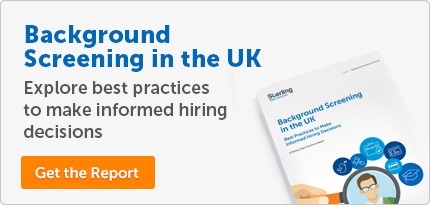January 4th, 2018 | Sterling
Why Should You Conduct Employment Verifications?

Finding the perfect candidate can be described as searching for a needle in a haystack. Despite all the hiring committees, phone screening, in-person interviews, tests and other vetting methods, employers and recruiters can make bad hiring decisions. A Society of Human Resource Management Report found that 78% of job applicants have misleading resumes. Of these, 21% state fraudulent degrees and 40% include inflated salary claims. Also, according to a new report in Inc.com, a staggering 85% of employers have caught applicants lying on a CV or application. CV lies include exaggerated job titles and responsibilities, falsification of education credentials, inflated salaries, misrepresentation of dates and employment and falsifications stating they are eligible to work in a particular country.
An employment background check provides a detailed look at a new hire, giving organisations the insight they need to make an informed hiring decision. Sterling published “Background Screening in the UK-Best Practices to Make Informed Hiring Decisions.” The report looks at nine of the most common pre-employment checks in the UK, including employment verifications. The eBook details what each check entails, explains why employers conduct each check and provide some practical considerations that may improve a company’s background screening programme.?
The report also shares some examples of the discrepancies we’ve found in our data. Discrepancies are red flags that come up when the information provided by the candidate does not match what is found by the screening provider. The research findings for discrepancies for employment verifications show insight into both industry and job titles. Based on our background screening results, employees in the healthcare industry may be more likely to have a red flag in their employment verification.
- Healthcare – 47%
- Staffing – 46%
- Business Services – 42%
- Financial Services – 37%
Similarly, salespeople seem to be significantly more likely to have discrepancies in their employment compared to other employees.
- Sales Person – 53%
- Consultant – 40%
- Account Manager – 38%
- Director – 35%
Why Should You Conduct Employment Verifications?
Relying on just the information on a CV or application can lead to potential bad hires. The impact of one bad hire can spread throughout the entire company and leave behind harmful consequences to the company’s reputation, employee morale and even financial assets Best practice is to institute a consistent program of employment verifications and reference checks on all candidates. Background screening protects an organisation’s property, reputation, brand and ultimately its biggest asset, the people.
What are Employment Verifications?
In a competitive job market, some candidates may do anything they can to get potential employees to notice their CVs. Unfortunately, some of what appears on their resumes may be questionable. Education and employment verification services contact the past employer’s human resources and payroll departments to make sure that the candidate’s information is factual and without personal bias. Employment verifications compare information on the CV against information directly from the source to see if there are differences in prior positions held, job titles, dates of employment and reasons for leaving. By cross-referencing this information with details provided by a candidate, employers will obtain an invaluable view of their work experience and integrity.
Third-Party Employment Verification Services
For many hiring organisations it can be a challenge to obtain this employment verification information as it can be time-consuming and complex. Outsourcing this to dedicated experts as part of a wider background screening programme can be more effective and save time.
The starting point for this process is to request referral information from the candidate. However, there are some considerations to keep in mind when asking for this information from a candidate including:
- Candidates typically provide the contact details of someone they know will provide a great reference
- Unbiased information directly from HR or Payroll may offer a more accurate and holistic view
- Some employers in regulated sectors such as finance and banking should ensure that activity and gap verifications are fully compliant and that their screening programme has a consistent and auditable process
- Candidates will sometimes have a different version of why a previous employer no longer required their services or may make innocent mistakes regarding dates of employment. Potential hires should be given the opportunity to challenge or explain discrepancies.
Companies need to determine which type of background screening check is the most important to protect their employees and businesses. Download a complimentary copy of our “Background Screening in the UK-Best Practices to Make Informed Hiring Decisions” eBook to find out more about the types of background screening in the UK.
This publication is for informational purposes only and nothing contained in it should be construed as legal advice. We expressly disclaim any warranty or responsibility for damages arising out this information. We encourage you to consult with legal counsel regarding your specific needs. We do not undertake any duty to update previously posted materials.

